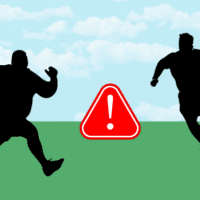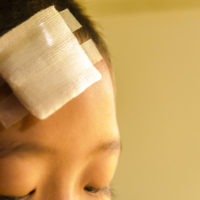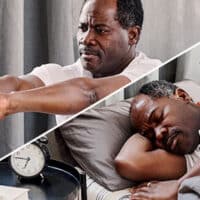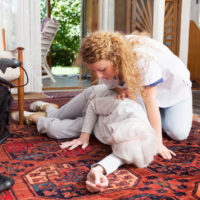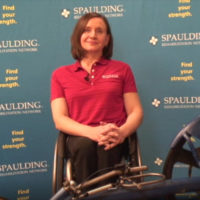Archive
Risks & Prevention
What are the risk factors and prevention strategies for concussion or other traumatic brain injuries?
The Repercussion Group Issues Urgent White Paper Warning Against “Run It Straight” and RUNIT Championship League
The Repercussion Group, a global coalition of medical and advocacy experts, has issued an urgent White Paper condemning the viral “Run It Straight” challenge and its commercial spin-off, the RUNIT Championship League, as dangerous and unethical. These events, which involve participants colliding at full speed for online entertainment, pose severe risks of brain trauma, spinal injury, and long-term neurodegenerative disease. The group warns that social media platforms are enabling and profiting from this harmful content, often targeting vulnerable individuals. They call for immediate policy action, including bans, content regulation, education initiatives, and research funding, to curb what they describe as a growing public health crisis.
Is There a Connection Between Mild TBI and Mental Health Disorders in Adults and Children?
In a recent study, researchers at Kaiser Permanente found that risks for affective and behavioral disorders were significantly higher in the years post-injury for children and adolescents with a history of mTBI—especially for 10- to 13-year-olds. They emphasize the importance of regular interval screening for affective and behavioral disorders in children and adolescents who sustain a mild TBI. This post includes a slide presentation and Q & A with two of the researchers, Richard Delmonico, PhD, and Brian Theodore, PhD.
Why I Am Not Surprised About the Latest CTE Research
Millions of children play contact and collision sports in the US, with high risks for head impacts. Repetitive hits can result in concussions or subconcussions without immediate evidence of neurologic injury. CTE is a brain disorder caused by repetitive hits to the brain from sports such as football and soccer. The latest study from Dr. Ann McKee’s brain lab at Boston University links CTE to child athletes who died before the age of 30.
Treatment and Prognosis after a Concussion
Learn about treatments for post-concussion symptoms—including medication, various rehabilitation therapies, neuropsychology, and potentially some complementary therapies—as well as factors related to longer concussion recovery times.
Concussion in Stunt Performers and other Film & Theater Workers
New research by Professor Jeffrey Russell of Ohio University provides evidence that concussion is a serious occupational health risk in stunt performers. They—and likely other film/theater workers—could benefit from concussion management, risk reduction, and education.
Updating the International Sports Guidelines for Concussion
The 6th International Consensus Conference on Concussion in Sport meets in Oct 2022 to face again the task of revising their sports concussion guidelines. The conference comes in the midst of controversies regarding Paul McCrory, the group’s former chair, and just after a long-awaited statement of causation for CTE from the NIH.
Top Causes of Concussion in Children and Adolescents
When we think of “youth” and “concussion,” the first thing that likely comes to mind is a teenager engaging in a high-risk activity such as football, soccer, or snowboarding. But not all youth brain injury results from these risky activities. Of the millions of concussions reported by emergency rooms every year, figures put concussions related to sports and recreation at just 30% – so 70% of concussions result from other causes.
3 Things to Do to Allow Your Brain to Recover More Quickly After Brain Injury
After a concussion, people need good sleep patterns, and they also need to resume activity and exercise to aid recovery. Activities with concussion risk should be avoided, however.
Traumatic Brain Injury and the Elderly
Traumatic brain injury (TBI) is a leading cause of death and disability among seniors. The cause is often a fall or a motor vehicle accident, but head trauma due to elder abuse or neglect must always be considered, too. Older adults usually have other health conditions and sometimes dementia, so a diagnosis of a TBI can be challenging. The brains of elderly people are also more vulnerable to injury, and many older adults are on anticoagulant medications that put them at risk of brain bleeds. If elder abuse or neglect is suspected, mandatory reporting laws must be followed by certain professionals and even ordinary citizens in some states of the United States.
Abuse: A Leading Cause of Brain Injury in Children
Child abuse is a top cause of brain injury-related emergency room visits, hospitalizations, and deaths among children of all ages. Diagnosis can be challenging in cases of pediatric abusive head trauma. Prevention strategies at the individual and community level can be effective and there are many available resources.
Falls and Brain Injury in Older Adults
Traumatic brain injuries are very common in older adults who fall. They can result in hospitalization, death, or disability especially in this age group and those on certain medications. In this post, an elderly woman has a delayed hematoma from an injury that could have been deadly. Falls can be prevented and Dr. Sandel shares important information about risk factors and tips for prevention.
Concussion in ParaSport
Dr. Cheri Baluwet, a Paralympic athlete, physiatrist and sports medicine physician, has insights on concussion in Paralympic sports, and the differences in evaluation, prevention, and management for these elite athletes.
Keep up to date
Get updates on the latest in concussion, brain health, and science-related tools from Dr. Elizabeth Sandel, M.D.
By clicking SIGN UP, you agree to receive emails from Dr. Sandel and agree to our terms of use and privacy policy.
